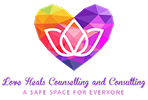When it comes to mental health, our experiences go far beyond emotions alone. Our culture, family, and personal history all shape who we are and how we feel. As a counselor, I believe everyone deserves a safe space where they feel fully seen and respected for who they truly are. Decolonized psychology—shaped by experts like Frantz Fanon and Linda Tuhiwai Smith—teaches us to look at each person’s full story, valuing every part of them. This approach fosters a deeper kind of healing, one that honors both individuals and their communities.
In my practice, I know there’s no one-size-fits-all approach to counseling. Each person’s journey is unique, and my goal is to create a supportive space that is shaped around you. We work together to explore and understand the pieces of your life that make you, you.
1. Understanding Culture and Belonging
Our culture—our values, beliefs, and traditions—is a big part of who we are. Frantz Fanon, a psychologist, noted that when people’s cultures aren’t respected, it can affect their sense of self. Real healing happens when people feel their culture is genuinely valued and understood.
In counseling, I welcome clients to bring their culture into the room. This helps clients feel that all parts of them are seen and accepted. It’s a way of saying, “I see you, and I see everything that makes you, you.”
2. Healing Through Family and Shared Stories
For many of us, our identity is deeply shaped by our family stories, shared struggles, and the communities we come from. Dr. Sunil Bhatia, who studies culture and identity, highlights how immigrant families often face unique challenges. Acknowledging these experiences is essential in mental health care.
In sessions, we explore the stories of family and community together, allowing clients to see themselves as part of something larger, connected to their loved ones and their heritage. This kind of healing isn’t just for one person; it brings comfort and strength to everyone connected to them.
3. Recognizing and Honoring Experiences of Oppression
Some clients carry the weight of difficult experiences like racism, sexism, or other forms of unfair treatment. Dr. Lillian Comas-Díaz explains that this kind of pain is real and deep. When these experiences are ignored, people can feel alone and misunderstood. Acknowledging them can bring true healing.
In my sessions, I create a space where clients can share these experiences and feel heard. Together, we name these struggles, helping clients feel less isolated and more understood. This healing isn’t just for them—it reaches their whole community, where others may have faced similar challenges.
4. Finding Strength in Identity and Culture
Researcher Linda Tuhiwai Smith emphasizes that everyone has strengths rooted in their culture and community. Decolonized psychology encourages people to reconnect with these inner strengths, helping them see the good they bring to the world.
In our work together, I help clients discover their inner resilience. We look at the strengths they carry, especially those drawn from culture and family, to empower them and give them confidence in facing life’s challenges.
5. Looking at the Bigger Picture of Healing
Mental health isn’t just about working on individual issues—it’s connected to the world around us. Dr. Eduardo Duran, who studies healing in Indigenous communities, reminds us that mental health also involves collective healing. Our well-being is deeply connected to the well-being of our communities.
In counseling, we set goals that reflect both personal and community needs. By considering the bigger picture, we can create a more meaningful healing journey that involves everyone. Therapy becomes a way to support both the individual and their family and community.
Final Thoughts: Healing Together
Decolonized psychology teaches us that mental health is more than an individual journey—it’s something we share and can experience together. As a counselor, I want each client to feel that they are not alone and that their healing journey is uniquely theirs, woven into the larger picture of family, community, and beyond.
#CulturallySensitiveCounseling #NoOneSizeFitsAll #DecolonizedPsychology #CollectiveHealing
